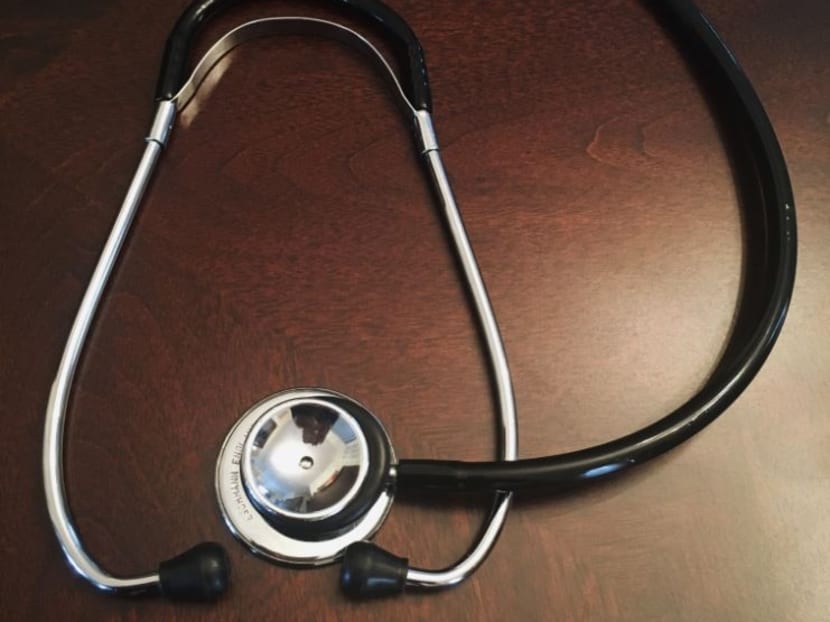Telemedicine to be regulated: Health Ministry
SINGAPORE — Amid the rise in virtual platforms offering health consultations and electronic medical certificates (MCs), industry bodies warned medical practitioners on Friday (Jan 26) of the “potential pitfalls of telemedicine”.

Medical watchdogs here have warned medical practitioners on the potential pitfalls of telemedicine. Photo: Unsplash / Pina Messina
SINGAPORE — Amid the rise in virtual platforms offering health consultations and electronic medical certificates (MCs), industry bodies warned medical practitioners on Friday (Jan 26) of the “potential pitfalls of telemedicine”.
Doctors who sign on with businesses offering such services should ensure their clinical decisions are “always…justifiable and defensible”, the College of Family Physicians Singapore (CFPS) and Singapore Medical Association (SMA) said in a memo to members.
The authorities, meanwhile, told TODAY they intend to license telemedicine under the future Healthcare Services Act. The Ministry of Health (MOH) said it is currently working with providers to “better understand their business models and will work with them to develop appropriate regulations for telemedicine”.
Ahead of regulation, CFPS president Tan Tze Lee and SMA president Wong Tien Hua said in their statement: “Doctors are ultimately responsible for any clinical decisions made and will be accountable if clinical standards are not upheld.”
For instance, it is not possible for a doctor to assess a patient with asthma via a telehealth platform, they said.
An MC should also be issued only after careful and adequate assessment and is “a responsibility that cannot be taken lightly”, they stressed.
The councils of both bodies “view (the) development (of such platforms) with concern”, they said, adding that some of these business entities are not registered medical establishments and are therefore not accountable to the MOH.
“We are of the opinion that the current telemedicine technology is unable to replace a face-to-face consultation, which typically includes a physical examination, except for the most minor of conditions,” they said.
While mobile platform providers such as Doctor Anywhere and MyDoc allow patients to cut queues and have consults on-the-go, some doctors here have been calling for stronger safeguards for such virtual platforms, pointing to how they may prompt individuals to doctor-hop or fake illnesses to get MCs.
The proportion of fees paid by patients that is pocketed by platform providers, which is typically one-third of the total sum, also raises concerns of fee-splitting. The latter is a breach of ethical guidelines set out by the Singapore Medical Council.
The proposed Healthcare Services Bill, which the MOH plans to enact from the second half of this year, is expected to bring greater regulatory clarity in non-mainstream fields of healthcare such as telemedicine. A public consultation exercise on the Bill is ongoing.
Non-premises based services are currently not regulated.
Doctors providing care on virtual consultation platforms must ensure they are able to accurately diagnose a condition and offer the most appropriate treatment, the MOH said. “Having disclaimers on such platforms will not absolve the doctors of any professional misconduct, negligence or incompetence. If in doubt, doctors should offer to see the patients face-to-face, so that they are able to conduct a proper physical assessment of the patient.”
For telemedicine providers based overseas who wish to provide services to patients in Singapore, MOH will explore requirements for them to tie up with a local licensed doctor or provider. “This would act as an additional safeguard for Singaporeans,” said the spokesperson.
As for telehealth products, the MOH said those intended for medical purposes are regulated as medical devices by the Health Sciences Authority.
The medical device companies are responsible for cybersecurity controls in their risk management plans, post-market management systems and routine cyber maintenance for medical devices. These requirements are aligned to relevant overseas or international standards like the United States Food and Drug Administration-recognised standards (UL 2900) and ISO 13485 standards, the ministry said.






